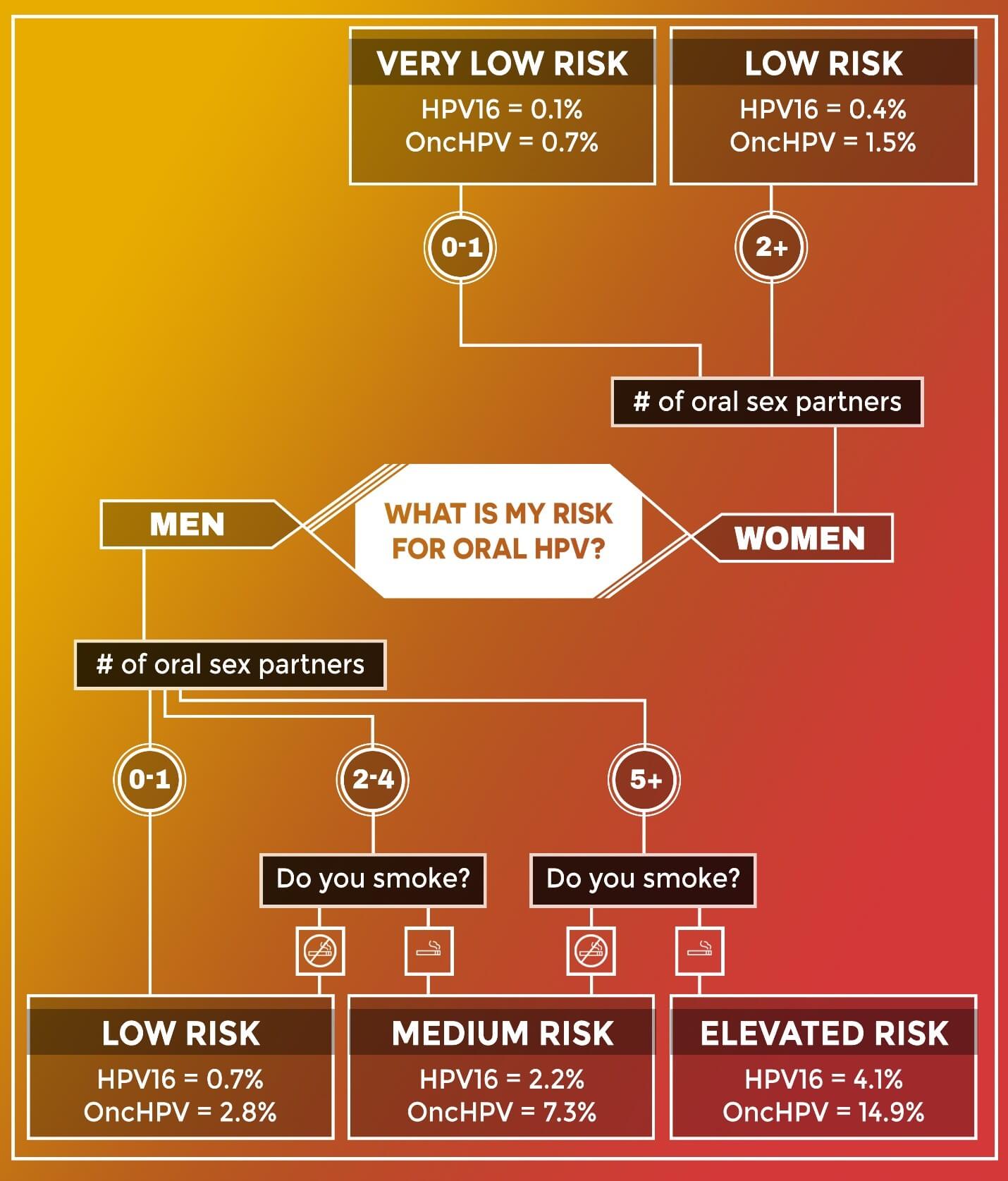HPV and Head & Neck Cancer FAQs
Frequently Asked Questions about HPV Head and Neck Cancers
Johns Hopkins head and neck surgeon Carole Fakhry answers questions about oral HPV, the HPV vaccine and recommendations for the vaccine’s use.
What is Human Papillomavirus (HPV)?
- HPV is a sexually transmitted infection that can infect the oropharynx (tonsils and back of throat), anus, and genitals.
- There are many types of HPV. HPV can cause cancer, warts or have no effect.
- HPV is very common in the U.S. Over 20 million Americans have some type of genital or oral HPV infection.
- In some people, oral HPV infection leads to HPV-OSCC (HPV-positive oropharyngeal squamous cell cancer) after many years.
What causes oropharyngeal cancer?
- HPV now causes most oropharyngeal cancers in the U.S.
- It is recommended that oropharyngeal tumors be tested for HPV.
- Smoking and alcohol use can also cause oropharyngeal cancer.
How did I get an oral HPV infection?
- HPV is transmitted to your mouth by oral sex. It may also be possible to get oral HPV by other ways.
- Performing oral sex and having many oral sex partners can increase your chances of oral HPV infection.
- Having an oral HPV infection does not mean your partner was/is unfaithful and does not suggest promiscuity.
- Many people with HPV-OSCC have only had a few oral sex partners in their life.
 A flowchart of Risks of Oral HPV for Men and Women. See a larger version.
A flowchart of Risks of Oral HPV for Men and Women. See a larger version. Who has oral HPV infection?
- Many people will likely be exposed to oral HPV in their life.
- Around 10% of men and 3.6% of women in the U.S. have HPV in their mouths and HPV infection is more commonly found with older age.
- Most people clear the infections on their own within a year or two, but in some people HPV infection persists.
Can I transmit oral HPV infection to others?
Family and Friends:
- Oral HPV is not casually transmitted by sharing drinks or kissing on the cheek.
- We do not know if open mouth kissing can transmit HPV.
Partners of people with HPV-OSCC:
- You have already likely shared whatever infections you have.
- You do not need to change your sexual behavior.
- Female partners should have regular cervical Pap screening.
New sexual partners in the future:
- Many patients with HPV-OSCC no longer have HPV detectable in their mouth after treatment, while others do.
- With new partners, discuss protection methods (e.g. condoms and barrier protection).
When did I get this infection?
- We do not know the time from first oral HPV infection to cancer but it takes many years.
- We know that some people have infection 15 years or more before cancer.
What does having HPV in my tumor mean?
- Oropharyngeal cancer patients with HPV in their tumor live longer, on average, than people without HPV (i.e. HPV-positive tumors usually respond well to therapy).
- However, patients who currently smoke tobacco or have smoked for a long time in the past do not live as long as patients who never smoked. Patients who are current smokers should consider quitting.
Will the HPV vaccine help me?
- The HPV vaccine prevents people from getting new HPV infections.
- The vaccine will not help you clear an infection you already have.
- The vaccine is recommended for people ages 9 to 26 years old.
Will my spouse/partner also get Oropharyngeal Cancer?
- The risk of HPV-OSCC (HPV-positive oropharyngeal squamous cell cancer) may be slightly higher among spouses of HPV-OSCC but this cancer remains rare among spouses.
- There are no recommended screening tests for HPV-OSCC in clinical care. There are available research studies to explore possible screening tests. Find more information on the MOUTH Study.
**These questions and answers are modified from Fakhry C, D’Souza G. Discussing the diagnosis of HPV-OSCC: Common Questions and Answers, Oral Oncol (2013), with permission from Elsevier

